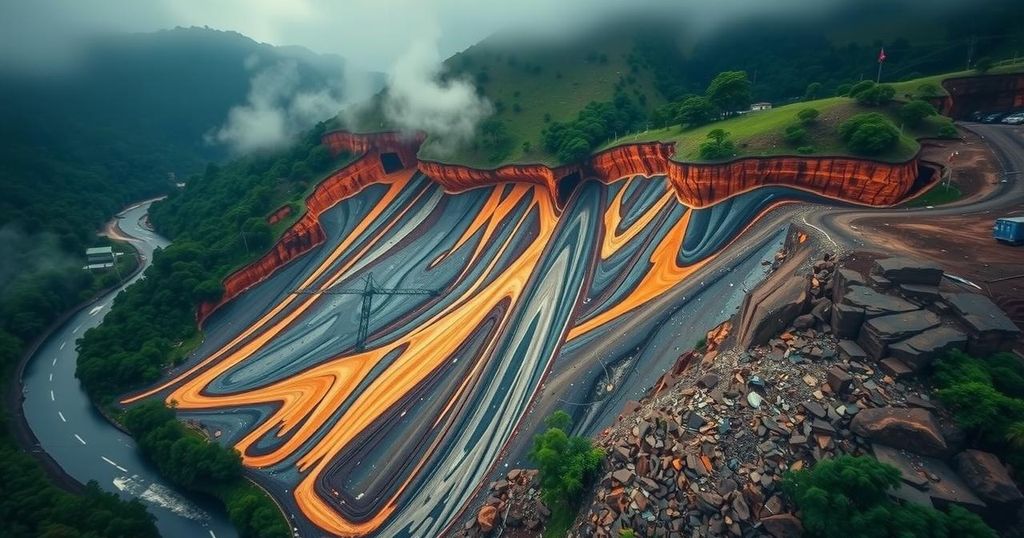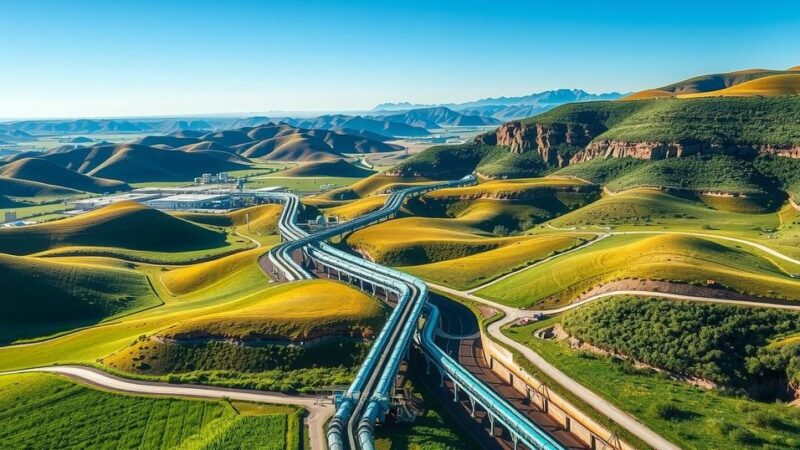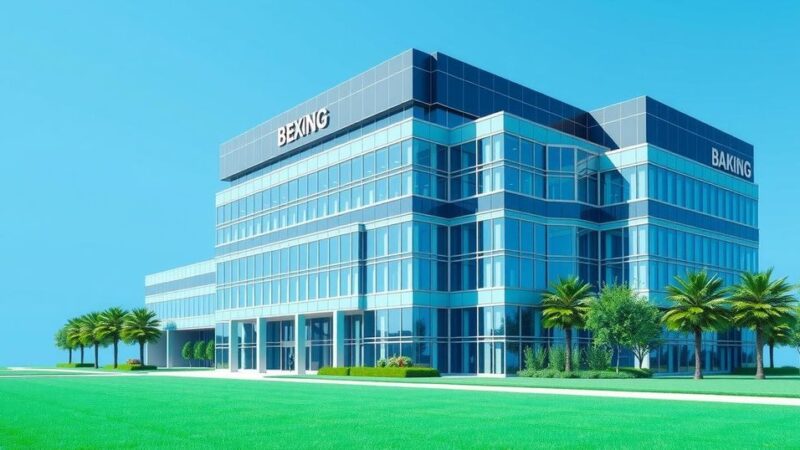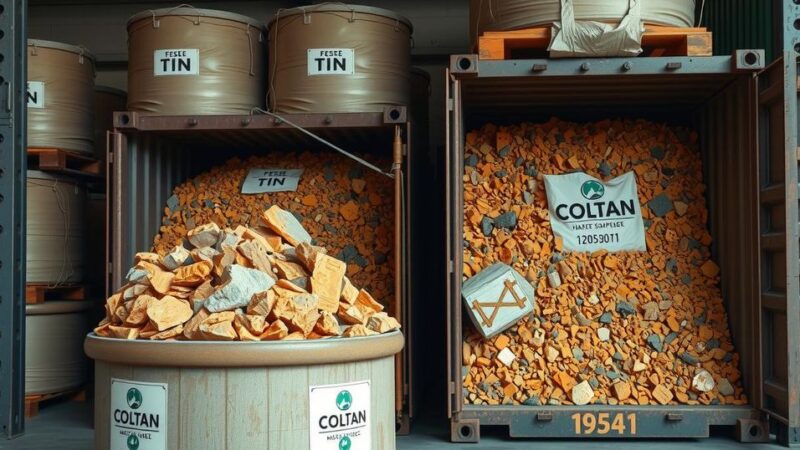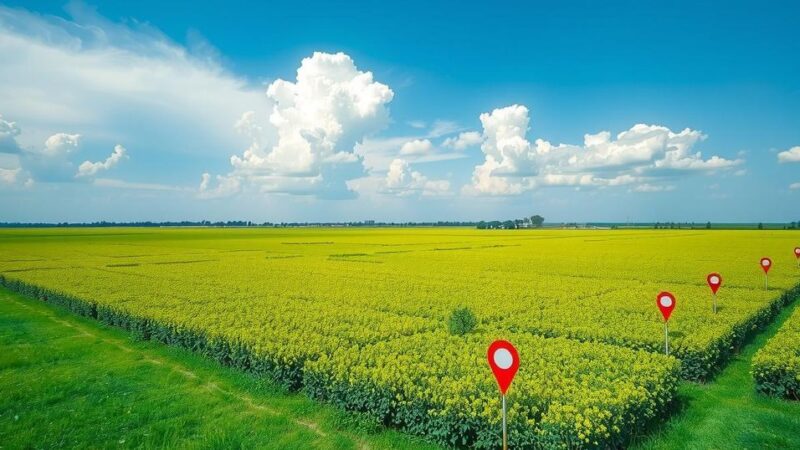A mountain collapse in the DRC’s Katanga region revealed vast copper reserves, igniting debates on poverty and potential foreign exploitation. The region is pivotal for global copper supply amid rising demand for clean energy technologies. However, concerns over human rights violations tied to mining activities prompt calls for just practices in resource extraction.
A recent mountain collapse in the Katanga region of the Democratic Republic of Congo (DRC) has unveiled significant quantities of copper, prompting widespread attention on social media platforms. The event, captured on video, showcased the dramatic occurrence and the immediate reactions of locals fleeing the area. Many observers have expressed concern about the poverty within the DRC and the potential for foreign exploitation of its natural resources. The region, known for its rich mineral deposits, has historically been a hub of copper mining, contributing substantially to Zambia and Congo’s economies. Copper extracted from this region, often employed in the production of electric vehicle batteries, becomes increasingly important amid the global transition to clean energy. However, accompanying these mining activities are serious allegations of human rights violations, including forced evictions and abuses tied to industrial-scale resource extraction.
The Katanga region of the DRC is part of Africa’s copper belt, renowned for its extensive copper and cobalt reserves. This area has seen large-scale mining operations for over a century, making it one of the world’s principal sources of copper. Notably, during the 1950s, the region dominated global copper production. In the contemporary landscape, the region continues to contribute significantly to global copper supplies. The economic benefits from these resources are substantial; however, reports indicate that mining practices often infringe on human rights and lead to environmental degradation, warranting critical scrutiny from international watchdogs such as Amnesty International.
The mountain collapse in the DRC highlights the intersection of natural resources and ethical considerations surrounding their extraction. As the world increasingly relies on copper for technological advancements, it becomes imperative to address the human rights and environmental concerns associated with mining in regions like Katanga. The voices of local populations must be integral to the conversation about resource management and equitable development in their homeland.
Original Source: www.livemint.com
